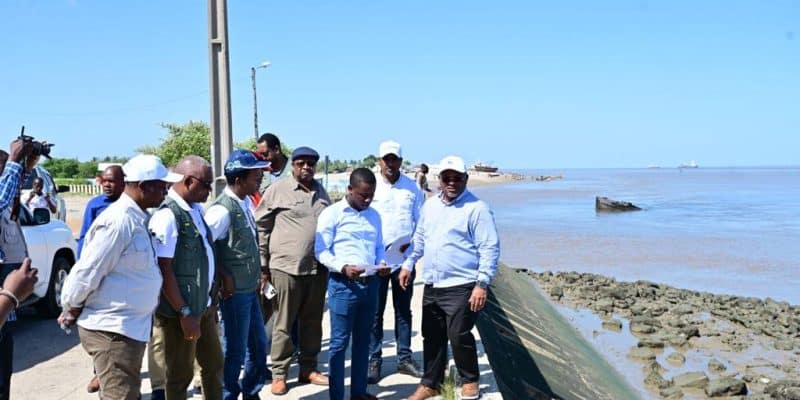As the coastline of Beira, the largest city in the province of Sofala in Mozambique, is weakened by flooding, the Mozambican government is planning to implement a resilience project. Work will start before the end of this year.
Beira will soon be better equipped to deal with floods. The Mozambican Minister of Public Works, Housing and Water Resources, Carlos Mesquita, has announced the implementation of a project to protect the coastline of this city, located in the province of Sofala in Mozambique. The initiative, which will be launched before the end of 2023, will include the construction of approximately 100 hectares of retention basin in Estoril, a district of Beira.
To reduce persistent flooding in the city, the Ministry of Public Works, Housing and Water Resources is also considering the construction of spillway control stations equipped with gates, the Estoril outfall and its outlet channel to the mouth of the Maria River. Bridges and service roads will be built along the new drainage channels. About 13 km of existing drainage network will also be rehabilitated to support the new system.
Funding from the Netherlands and the World Bank
The aim is to increase sanitation coverage and improve public and environmental health conditions in Beira. In March 2022, heavy rains caused nearly 500 people to flee their flooded homes, making roads impassable and cutting off electricity supplies.
To reduce flooding in Beira, the Mozambican authorities are also announcing the restoration of the dune belt that protects the city with vegetation, the protection of coastal sections with rocks, the construction of a concrete protection wall (Mangal area in Praia Nova), the repair and reinforcement of the old wall (Mangal area in Praia Nova) and the construction of Clay Dique (in the Regulo Luis area, Estoril). The Government of Mozambique will receive financial support from the Netherlands and the World Bank.
Read Also – MOZAMBIQUE: Deadly floods threaten food security in Boane
The project, which will benefit other towns in Sofala province, will also establish an early warning system for disaster management, as well as build institutional capacity for the operation and maintenance of the future infrastructure, which is scheduled for delivery in 18 months.
Inès Magoum







